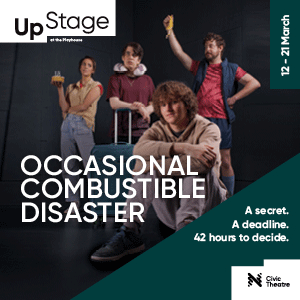Lost Connections The Key to Men’s Health
- Jul 1, 2019
- 3 min read

When is the right time to talk about the health of men and boys? It is always the right time. But for many, they just don’t know where to begin. This is not the time to ask why, but to ask how and who? Enough has been written about the programming of the brain, the impact of testosterone, family and societal conditioning, and assumed roles and responsibilities of being a male. The questions I pose now are:
How can we empower men and boys to be better men and boys?
If you don’t have the tools and resources, then who can help you to find those missing tools and resources?
Let’s look at the grim statistics* (*Lifeline 13 11 14)
In Australia, there are more than eight (8) deaths each day by suicide.
Figures indicate that the ratio of suicide deaths is three males to every female.
It is estimated that for every suicide, 30 people have attempted to end their life.
In mid-June, we had Men’s Health Week. I had the pleasure of going along to an event at The Blind Monk in Hamilton with the theme ‘Keeping Boys and Men Healthy.’ It opened my mind to how I can offer more to the community of men.
What a positive night, attended by over 50 people wanting to improve men’s health. Among the speakers were Professor John MacDonald (Director of Men’s Health Week), Sam Parker (Grab Life by the Balls) and others. There were many constructive messages taken from that evening, but for me, it was the strength of connections. Us humans are social animals who thrive through the fostering of family and social and community connections. It could be argued, however, that as a society, we are more disconnected than ever before. We might be connected electronically with a plethora of devices, however paradoxically our human to human connection is reduced.
‘Connections’ has many connotations. For many men who are living with mental health challenges, they could be experiencing a disconnection from meaningful values, disconnection from meaningful work or contribution, a disconnection from status and respect, and maybe even a disconnection from hope for a successful or secure future (Hari, Johann, Lost Connections, 2018).
Teenage boys might be experiencing mental health issues due to a lack of an adult male role model in their life. I encourage any parent of teenage boys to read Celia Lashlie’s He’ll be OK. She was an inspirational educator of young men and boys in New Zealand. She gained an understanding of the developing male brain from being the first woman prison officer to work in a male prison, and from her own experience of raising a teenage boy as a single parent. She talks about the moment that she realised it was time for her to step off the adolescent male bridge and to invite an older male to be there as a guide for her son. It could be the boy’s father, an uncle, grandparent or a friend. But the value of having a significant positive male role model in the boy’s life is immeasurable.
Boys and men are complex beasts. Our communication is not always verbal. In fact, in many cases, verbal communication is not our strength. Some men find it difficult to discuss their feelings openly. I encourage men reading this article to give thought to how the bottling of emotions might not be the best strategy in dealing with ‘stuff.’ There is always a different solution.
So how are you going to be a better man and who is going to help you? There are many ways to start.
Read. There is plenty of literature online and in bookstores that offer strategies for men’s health.
Talk to someone. Talk to a partner, a family member, a workmate, a drinking mate, a footy mate, a counsellor or therapist. Just talk to someone.
Check in on a mate who you know might be feeling down. Please.
Let your mates know that you are only a phone call away. And if they call, be there for them.
This is about connecting again and knowing that you are a human, and many others have shared experiences. If telling your story is not your gig, you might also consider hypnotherapy. The hypnotherapist doesn’t have to know your content. They want to know the context. The context being, why has all of that stuff got you stuck now?
Are you ready to rebuild your future? Brett at Cameron Hypnotics has created a 3 Session Resilience Hypnotherapy program for $450. You might also want to check the range of self-hypnosis MP3s on Spotify and iTunes by searching Cameron Hypnotics. For more information, visit www.cameronhypnotics.com.au









































